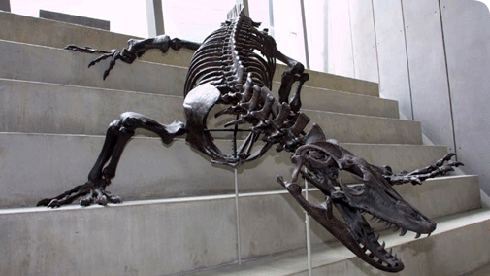Varanus prisca (giant monitor lizard)
Varanus prisca or giant monitor lizard is an extinct member of the monitor lizard family (Varanidae).
The giant monitor lizard was the largest lizard ever to live on land. Fossils of Varanus prisca have only been recovered from eastern Australia, from Pleistocene deposits (between 2.6 million years and 10,000 years ago).
The giant monitor lizard is thought to have become extinct due to effects of climate change.
Species detail
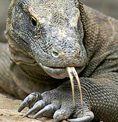
Komodo dragon
Varanus prisca shares numerous features in common with Komodo dragons, especially in the
- detailed structure of the skull
- large body size
Varanus prisca was originally described in a separate genus (Megalania) but is now recognised as a close relative of the living Komodo dragon (Varanus komodoensis).
-

Taxonomy
Read about the taxonomy of Varanus prisca, including how it is similar to and can be distinguished from other lizards.
-

Evolution
Learn more about the the evolutionary tree of Varanus prisca and the similar features it shares with Komodo dragons and other monitor lizards.
-
Distribution
Discover the locations that Varanus prisca fossils have been recovered from and the estimated date the species is thought to have become extinct.
-

Biology
Find out size estimates for Varanus prisca and what it used its sharply serrated teeth for.
-

References
Get reference material for Varanus prisca.
Images
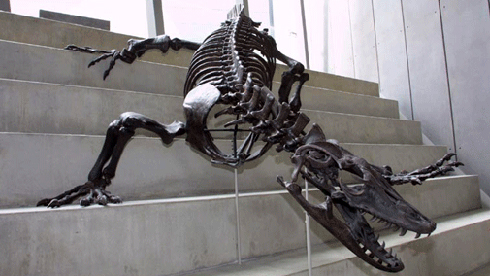
Mounted full-sized reconstruction of the skeleton of Varanus prisca on display in Melbourne Museum (Museum Victoria), Australia. © Melbourne Museum
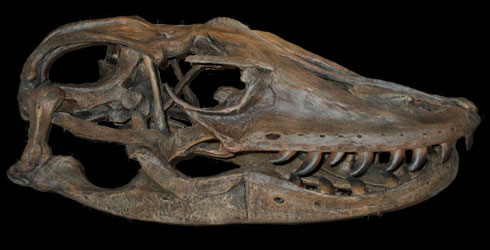
Skull of Varanus prisca, the extinct giant monitor lizard. © Boston Museum
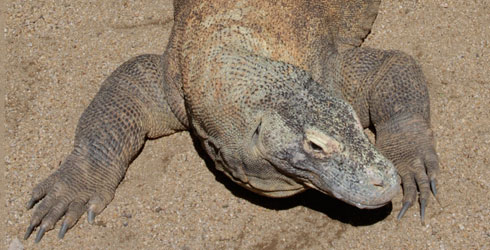
A Komodo dragon (Varanus komodoensis) - the closest living relative of Varanus prisca and a likely model for its biology and behaviour.
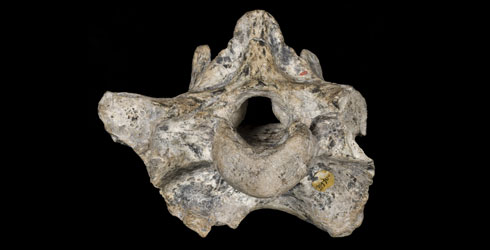
The braincase of Varanus prisca (NHM 39965) from Pleistocene deposits near Gowrie, on the Darling Downs, Queensland, Australia.
About the author

Prof Paul Barrett
Dinosaur researcher and head of the Vertebrates and Anthropology Palaeobiology Division.
